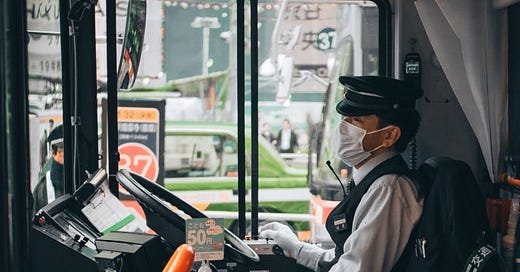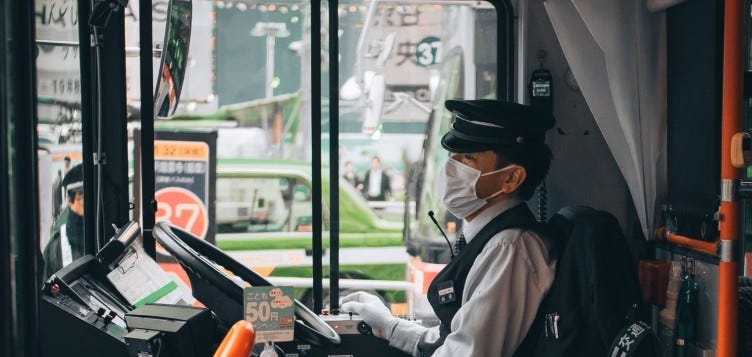Employee Well-being, COVID-19, and the Future of Work
10 hopes, fears, and questions — not predictions — posed at the outset of the Covid pandemic.
I don’t know what’s going to happen to the economy or what course the coronavirus pandemic will take. But I’ve had time to reflect on what a new world order may mean for employee wellness and the future of work.
Here are 10 hopes, fears, and questions (not predictions):
1) We’ll re-frame “meaningful work” — I recently heard, in an interview, a worker who delivers tortillas to grocery stores poignantly articulate what will prevail as a fresh take on meaning and work:
“Before all this, I was dealing with my own internal struggle and feeling like my job wasn’t meaningful. Everyone wants to feel like they’re helping contribute, and I didn’t have that. Since COVID-19, I feel necessary. When I go to work, I feel a sense of fulfillment, like I’m making sacrifices for other people. It’s brought meaning to my job. Oh my God, people need me!”
Sidenote: The original discovery of job crafting was an outgrowth of research into how jobs are valued or devalued by society, and how this affects workers’ sense of meaning in their work and, ultimately, their own self-worth.
2) We’ll awaken from our primary care delusion — Most official coronavirus self-care guidance culminates with “Call your doctor.” This advice is based on a fallacy… that everyone has a relationship with a primary care physician. Note, for example:
“Among men, 23% of whites say they don’t have a personal doctor, a number that jumps to 31% of blacks; 47% of Hispanics; 30% of Asians, native Hawaiians or Pacific Islanders; and 36% of American Indians or Alaskan natives.”
— Kaiser Family Foundation (reported in FierceHealthcare)
3) Workers will take back physical health as a cornerstone of wellness — Employees may feel new urgency to prevent and/or manage risks and diseases like hypertension, diabetes, obesity, and heart disease. In a tougher business environment and a tighter job market, employers also will shift away from more abstract dimensions of wellbeing.
4) We’ll recognize that an employer’s commitment to wellbeing is demonstrated mostly by its policies and practices — Employers that offer comprehensive wellness programs but don’t offer paid sick leave, job security, or safe environments, for example, will be exposed as unsupportive of employee wellbeing.
5) We’ll re-learn health behavior change theory — What does it take to motivate people to wash their hands more frequently, stop touching their face, and adhere to social distancing guidelines? They have to
Believe the risk to their health is real
Believe the benefit of behavior change outweighs the effort
Believe in their competence to change behavior.
Maybe we can develop a model: We could call it… The Health Belief Model?
6) We’ll emphasize evidence-based practices to support mental health and those with mental illness — With expectations that the coronavirus pandemic is and will continue to be associated with mental health problems — including depression, PTSD, anxiety, and substance abuse — we’ll prioritize science and professional expertise over thought leadership and self-help fads.
7) Professional organizations will spotlight a new class of leaders, role models, and inspirations — We’ll look beyond the CEOs, athletes, and coaches often defaulted to deliver keynote addresses at our conferences in favor of grassroots leaders among frontline workers and first responders, as well as leaders in science.
8) We’ll promote preventive care fearlessly — Health promotion professionals will get back to a fundamental job responsibility: unapologetic promotion of risk- and age-based preventive health care services — including childhood immunization — based on guidelines from authorities like the CDC and the United States Preventive Services Task Force.
9) The US will re-evaluate the relationship between employment and health insurance — Employer-sponsored health care hasn’t worked for years, and it's doubtful government-sponsored health care would be better. But we can’t be complacent, and must be determined to identify models that are effective, sustainable, and just.
10) We’ll re-write the book on the Future of Work — The future of work will not be defined by artificial intelligence, machine learning, big data, and robotics. These have always been more relevant to the future of jobs rather than the future of work. The future of work will be about the experience of a workforce that instantaneously became more dispersed than ever; widening social class disparities within the workforce; the newly defined meaning of work; and understanding and mitigating the risks of precarious work.
This last item, about precarious work, requires expanding our perspective of inclusion and diversity to embrace gig workers, artists, part-time workers, multiple-job holders, migrant workers, the self-employed, and stay-at-home caretakers. Initially, some employers will question the relevance of workers outside their own organizations. But COVID-19 reminds us that one person’s illness can threaten everyone’s health. Inevitably, for our civilization to thrive, we’ll recognize, too, that each individual’s wellbeing is interdependent with the wellbeing of all.
(This post was originally published by the author on LinkedIn on April 18, 2020 and was reposted, with permission, by the Council for Disability Awareness on April 20, 2020). Copyright 2020 by Bob Merberg. All rights reserved.




